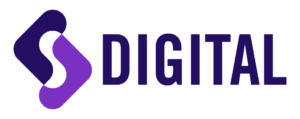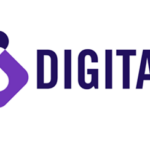
Pinnguaq is thrilled to announce our participation as a delivery and education partner in three new projects in partnership with DIGITAL, Canada’s Global Innovation Cluster for digital technologies. All three projects focus on strengthening digital skills in rural, remote, Indigenous and other equity-deserving communities.
The programs include a Digital Skilling and Workforce Development program, a Community Workforce Development Program anda Microcredential program. They align perfectly with Pinnguaq’s mission to work alongside rural, remote, Indigenous and other communities to support the development of science, technology, engineering, art and math (STEAM) skills. Furthermore, they are all connected to the Pinnguaq Lifecycle, the organization’s unique approach to supporting learners and communities at every stage of their growth.
“It’s about collaborating to discover how digital skills and tools can be learned and used in the communities in ways that are most impactful to those who live there. Rather than thinking about what these programs can do for communities, we’re driven by what communities can do with these programs,” says Ryan Oliver, CEO of Pinnguaq.
“We’re excited to partner with DIGITAL and are grateful for other generous funders for recognizing the need and opportunity and for making these programs possible.”
“Supporting equity and diversity within Canada’s technology sector is crucial to our country’s continued growth and prosperity,” says Sydney Goodfellow, Director of DIGITAL’s talent-focused program, the Digital Learning Lab. “We’re proud to partner with Pinnguaq for these initiatives to make learning more accessible and sustainable and to connect participants to in-demand careers. We look forward to this partnership building opportunities with rural, remote, Indigenous and northern communities in the digital economy.”
The projects are funded in part by the Government of Canada’s Skills for Success Program and Community Workforce Development Program. They utilize Pinnguaq’s national partnership network of communities and employers in Nunavut, the Northwest Territories, Yukon, Ontario, Quebec, Alberta, British Columbia, and Newfoundland and Labrador.
DigitalWorks: Digital Skilling and Workforce Development in Equity-Deserving Communities (Training + Paid Internships)
Pinnguaq will provide foundational and functional digital skills training to 880 jobseekers and workers in rural, remote, Indigenous and northern communities. The collaborative project will provide accessible, low-cost and brief digital skilling and workforce development activities through hybrid training opportunities and paid internships, supporting both job seekers and employers in community-relevant, emerging and high-demand sectors.
“Education and mentorship are some of our key focuses at Pinnguaq and this project allows us to work alongside learners from equity-deserving communities as they prepare to find meaningful employment, another part of our Lifecycle,” says Oliver.
DigitalWorks: Community Workforce Development Program (Training + Employability + Environmental Protection)
The Community Workforce Development Program focuses on upskilling/reskilling and work placements in Nunavut’s digital technology and e-recycling sectors. It aims to bridge the gap between labour market shortages and underemployed groups, while also addressing the lack of recycling and disposal initiatives in Nunavut, diverting at least 100 computers from the landfill.
This program includes the co-development and delivery of a three-week digital skilling program centred around computer refurbishment and e-recycling in a Nunavut-relevant context, reaching up to 113 participants in Iqaluit.
There will also be a five-week subsidized placement for up to 38 participants to apply skills, gain work experience and increase their employability, a direct connection to the Employment and Mentorship aspects of the Pinnguaq Lifecycle.
“With this program, learners are able to gain valuable work experience and first-hand understanding of the impact of STEAM knowledge with respect to employment in their own communities,” says Oliver.
Digital Skills Microcredential (Culturally-Relevant Learning + Accredited Education)
This program aims to strengthen foundational digital skills within Inuit communities through the co-design and delivery of a six-week digital literacy microcredential. Best of all, the program includes a tool to allow course materials to be adapted to serve other Indigenous communities, expanding its reach and impact.
The Microcredential program addresses the urgent need to provide sustainable, locally relevant digital literacy opportunities in communities facing significant barriers to digital learning, technological access and participation in the digital economy.
“Co-designing the microcredential means we’re developing a program that makes sense and is impactful to the specific communities where it will be delivered,” says Oliver.
“We can’t approach digital skills training with a one-size-fits-all approach. Needs, curiosities, experiences – they all vary by community and we need to engage with folks from those communities in order to make this microcredential meaningful.”
Development of the microcredential will involve collaboration between subject matter experts, educators, community leaders and representatives from the target population to inform project activities and assist with the co-design. The end product will be a comprehensive and culturally relevant program that incorporates Inuit Qaujimajatuqangit principles.
Digital Skills for a Digital World
Pinnguaq is honoured to partner with DIGITAL for these projects as both organizations are actively working to support a digitally skilled workforce from coast to coast to coast.
Supporting the development of these digital skills will not only support learners and workers, but will also ensure that rural, remote, Indigenous and northern communities have the opportunity to benefit from this digital transformation.

